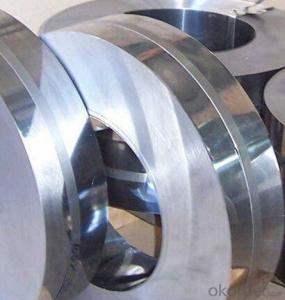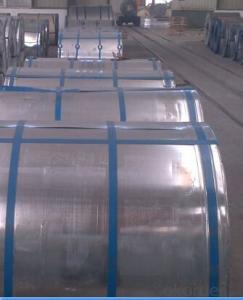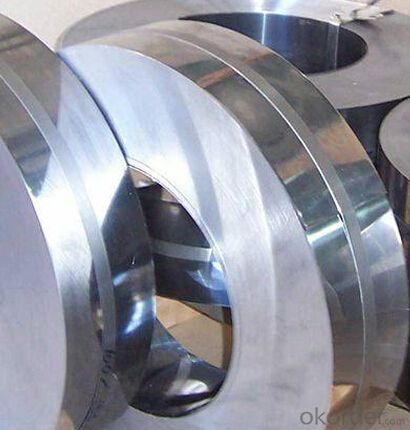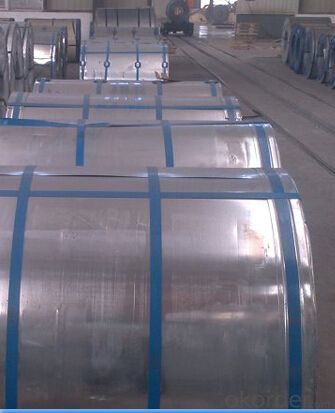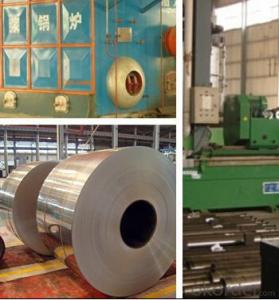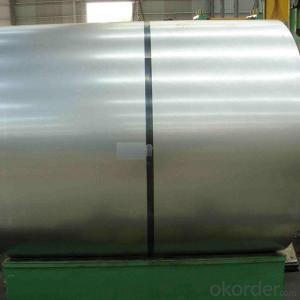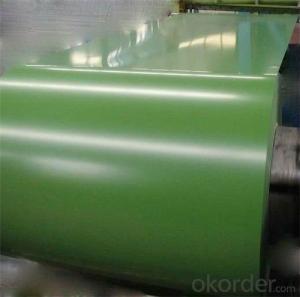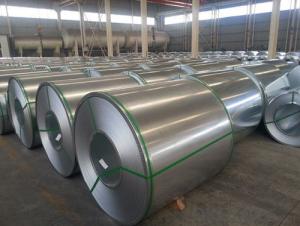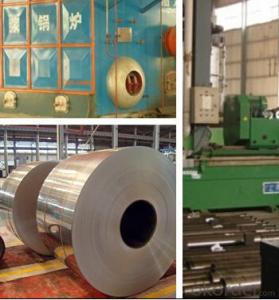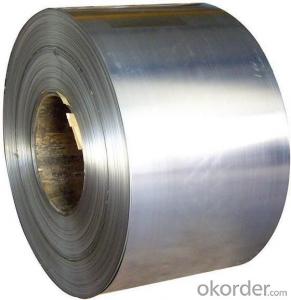Cold Rolled Steel Coil for Building Material
- Loading Port:
- Shanghai
- Payment Terms:
- TT or LC
- Min Order Qty:
- 25 m.t.
- Supply Capability:
- 50000 m.t./month
OKorder Service Pledge
OKorder Financial Service
You Might Also Like
Cold Rolled Steel Coil description:
| Standard: | AISI,ASTM,DIN,GB,JIS |
| Thickness: | 0.13-30mm |
| Application: | fridge ,air conditioner, washing |
| Model Number: | SGCC, SPCC, DC51D, SGHC |
| Width: | 600-2500mm |
SPCC cold rolled steel coil specification:
| Raw material | SGCC, SPCC, DC51D, SGHC,A653 |
| Certificate | ISO9001.ISO14001.OHSAS18001 |
| Thickness | 0.16mm-0.7mm |
| Width | 1250mm or under |
| Tolerance | thickness+/-0.01mm |
| Surface treatment | galvanized / galvalumized steel sheets |
T Bending (top-coating) T Bending (back-coating) | ≤3T ≤4T |
| Anti-MEK Wiping | ≥100times |
| Zinc coating | 40-180g |
| Type of coating structure | 2/1 or 2/2 coating, or customized |
| Standard | GB/T12754-2006, GB/T9761-1988, GB/T9754-1988, GB/T6739-1996, HG/T3830-2006, HG/T3830-2006, GB/T1732-93, GB/T9286-1998, GB/T1771-1991, GB/T14522-93 |
| Color | customized |
| Application | Building industry , structural use, roofing, commercial use , household appliance, industry facilities, office buildings |
FAQ:
1)Acceptable payment term and way?
T/T,L/C, T/T + L/C, D/P
2)Acceptable price term
FOB CNF CIF DDU CPT
3)Do you accept OA payment terms?
Yes, sure, but it normally depending on the order value
4)Do you have QC team?
Yeah, sure, our QC team is very important, they will keep the qualitycontrol for our products.
5)What is the validity of your quotation?
Normally 7 days.
6)What is your advantage?
24 hour quick response /Customer oriented/ Credit foremost/ Top quality Excellent.
- Q: also what are the factors of location of these steel plants
- iron ore comes from mines in North America, but also abroad. I think the majority of ore comes from mines in Michigan, Minnesota, and Canada. reason that steel plants are near great lakes is because the car industry is there... they are the major consumer of steel...
- Q: What are the main factors that affect the price of steel coils?
- The main factors that affect the price of steel coils are the cost of raw materials, supply and demand dynamics, production and transportation costs, changes in government policies and regulations, and global economic conditions.
- Q: I bought a damascus steel knife. It will be used for display. Nothing like hunting/skinning. If It is just sitting around, will it rust? (assuming that it isn't getting wet) Thanks for the help.
- From that point of view the strength or edge-holding ability means very little. Specifically, the bushcraft knife is pattern welded steel. True damascus or Wootz steel is something you'll only find in museums and private collections. they stopped making it several hundred years ago. Despite what many people have claimed, Wootz damascus was inferior to modern tool steels in every respect. It was a brittle, dirty material.
- Q: If you combine stainless steel with gold, does that make stainless gold?
- Nope, Stainless Steel is a tradename for a certain alloy. Regular Steel, which is formed from Ferrous Oxide (via the Bessimer Process). The stainless part is because they mixed in some other compound to give it unique qualities. Gold, on the other hand, is a pure element, and it can form alloys with other metals, but there are no guarantees what the properties will be
- Q: hello guys. im totally new to this metalwork things. i need to do it for my project. i need to join stainless steel wires to build some kind of structure (eiffel tow. for example).i already have the wire and the torch. now the question is: where do i get silver solder? is it expensive? and what is flux for? is it necessary? what does it do? is it expensive?thank u for ur time guys! :)
- u will need to use Grade 4 silver soder and standard silver soder flux .
- Q: What are the uses of galvanized steel coils?
- Galvanized steel coils are widely used in various industries for their durability and corrosion resistance. They are commonly used in construction for roofing, siding, and structural components. They are also used in the automotive industry for manufacturing parts such as body panels, chassis, and exhaust systems. Additionally, galvanized steel coils find applications in the manufacturing of appliances, agricultural equipment, and electrical enclosures.
- Q: What are the different methods of coil leveling?
- The different methods of coil leveling include roller leveling, stretcher leveling, and temper leveling.
- Q: How are steel coils priced?
- Steel coils are priced based on various factors such as the current market demand and supply, raw material costs, production and operational expenses, transportation costs, and other market dynamics. Additionally, factors like quality, specifications, and any additional processing or customization required can also influence the pricing of steel coils.
- Q: what is the difference between metal and steel
- well, steel is a type of metal. It's sort of like asking the difference between a bug and an ant, an ant is a bug, but not every bug is an ant. Likewise, steel is metal, but not all metal is steel. Gold is metal, Silver is metal, Iron is metal, Steel is metal.
- Q: I need steel toe shoes for a workplace, where can I get them?I live in Surrey,UK.
- steel okorder
Send your message to us
Cold Rolled Steel Coil for Building Material
- Loading Port:
- Shanghai
- Payment Terms:
- TT or LC
- Min Order Qty:
- 25 m.t.
- Supply Capability:
- 50000 m.t./month
OKorder Service Pledge
OKorder Financial Service
Similar products
Hot products
Hot Searches
Related keywords
